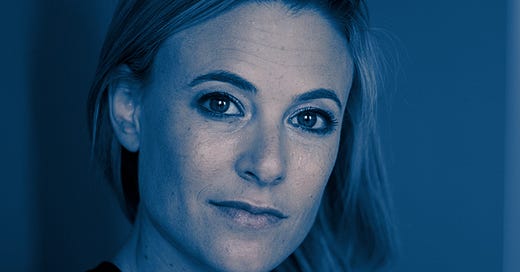Why we get bored—and how to make life more interesting
The science of how to not let modern life make you numb
How do people, places, or possessions that once fascinated or bewitched us so quickly become humdrum? The psychological term for this is habituation. You encounter something cool and exciting, but then you get used to it—or habituated to it—and the sparkle is gone.
The neuroscientist Tali Sharot recently co-authored a book on how to combat habituation. On my podcast today, she lays out a series of eminently doable suggestions:
Travel more. Doesn’t have to be some expensive jaunt; it can be a weekend getaway. When you get home, savor the reentry.
Take a different way to work.
Learn a new skill. Like a language, for example.
Next time you get sick, pay attention to what it’s like when you get better. Don’t take it for granted.
Spend time with a new person (or new people) occasionally.
She calls herself a “dishabituation entrepreneur.” She has lived in various cities; she pursues a diverse array of professional projects. She’s made it a huge part of her life, and so can you. It doesn’t have to be elaborate or expensive—just shake up your routine a bit. And remember to appreciate that routine when you come back to it.
Variety is the spice of life. And now there’s science behind the cliché.
Below, paid subscribers get an episode cheatsheet, which includes: a list of the key takeaways, time-coded highlights, and a full transcript. Paid subscribers also get access to the chat, monthly live video AMAs, and more. If money is an issue, email us at free@danharris.com and we’ll hook you up.
Or if you have money to spare and believe in what I’m doing, consider becoming a founding member to help us give away free subscriptions and support the work we do. Thanks for being here.
Episode cheatsheet
The Big Takeaway
Habituation - our tendency to respond less to frequent or constant stimuli - can dull our appreciation of positive things in life and make us overlook negative issues. By introducing variety, taking breaks, and actively noticing our surroundings, we can "resparkle" our experiences and avoid becoming numb to both the good and bad in our lives.
Overcoming habituation for a richer life
Break it up: Shorter, more frequent positive experiences lead to greater overall enjoyment than one long continuous experience.
Variety is the spice of life: Introducing novelty and diversity into your routine can boost creativity and happiness.
Swallow the bad whole: For unpleasant tasks, it's better to power through without breaks to allow habituation to kick in.
Experiment in living: Try new things and take breaks from habits to assess their true impact on your wellbeing.
Practical tips for “resparkling” your life
Take shorter, more frequent vacations to maximize enjoyment
Change your environment when working to boost creativity
Introduce variety into your relationship to maintain attraction
Take breaks from social media to assess its impact
Pay attention to the content you consume online, not just time spent
Call out small lies to prevent escalation of dishonesty
---
Episode timestamps:
00:00 - Introduction to habituation and its impacts
04:02 - Adaptive aspects of habituation
08:06 - Strategies for avoiding habituation to positive experiences
14:07 - The importance of variety and breaks
18:12 - Resparkling relationships
25:40 - Social media and habituation
32:36 - Content vs. time spent on social media
37:29 - Habituation to lying and dishonesty
41:49 - Habituating to negative macro trends
47:10 - Personal techniques for resparkling




Just listened to the podcast with the woman who is the professor at Harvard. And while I did find it valuable (as in there were more than a few things I have in my notes) I also became a bigger fan of Dan Harris the interviewer, as his ability to graciously and empathetically maneuver his way through the conversation deserves a nod. I laughed as well.
This is me. I finally have science to explain what’s gone on my whole life. Since my late 20s, I’ve lived a life where I’ve been lucky to leave my job and travel and volunteer for years at a time. My husband and I would work for a few years and then pack up and travel for a few years. We would serve on meditation retreats, sit long meditation retreats,conduct courses in hard places, some times pick up contract work and then after a few years return to a 9to5 life, only to do it again a few years later. Now due to life and family circumstances we’ve been in one place for 5 years with no plans to leave because of family. We have dogs. We are in a very bland routine. There is no sparkle. Thank you for this episode Dan. It gave me something to think about and clearly named the problem for me. I stopped beating my self up about it (what’s wrong with me) and now I have a better understanding of what is going on. ❤️